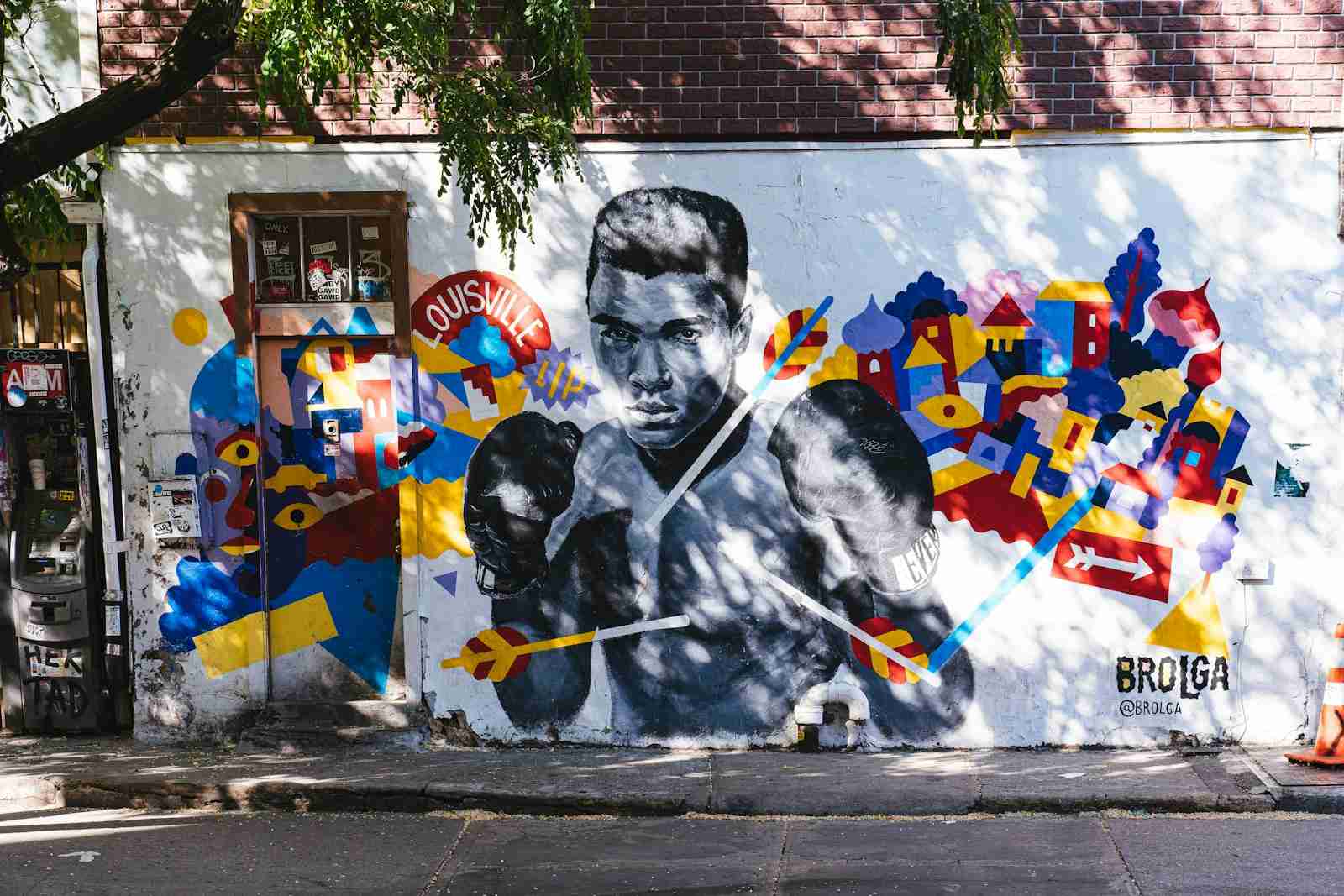24 Fun Facts About Muhammad Ali | Poet in the Ring
1. He was known for his poetic trash talk.
Ali was not just a fighter; he was also a poet in his own right. His pre-fight verbal jabs and poems were almost as famous as his physical prowess in the ring.
These rhymes and witty remarks were part of his psychological tactics against opponents, making him a master of mental as well as physical combat.
2. Ali won his first world heavyweight championship at 22.
At the young age of 22, Ali shocked the world by winning his first world heavyweight championship. This victory was against Sonny Liston in 1964, a fight that many believed he would lose.
The match is famous for Ali’s quote “float like a butterfly, sting like a bee.” His agile fighting style was unprecedented in heavyweight boxing at the time.
3. Ali boasted a professional record of 56 wins.
One of the most impressive Muhammad Ali facts is his professional boxing record. Over his career, Ali accumulated 56 wins, including 37 knockouts.
His ability to outclass opponents both physically and mentally in the ring contributed to this remarkable record. Ali’s charisma and confidence were just as powerful as his punches.
4. Muhammad Ali was born Cassius Marcellus Clay Jr.
Muhammad Ali’s original name was Cassius Marcellus Clay Jr., a name that marked the beginning of an extraordinary life. He was born on January 17, 1942, in Louisville, Kentucky.
The decision to change his name came after he joined the Nation of Islam in 1964. Ali described his former name as his “slave name” and chose Muhammad Ali, which was given to him by Elijah Muhammad.
5. Ali appeared on the cover of Time magazine five times.
Muhammad Ali’s global impact was further underscored by his appearance on the cover of Time magazine five times. These covers celebrated his achievements in boxing, his activism, and his role as a cultural icon.
Being featured so prominently on such a renowned publication is a rare honor, one that illustrates the depth of Ali’s influence on society and culture beyond the boxing ring.
6. Why is Muhammad Ali considered the best?
- In-Ring Dominance: His speed, agility, and innovative techniques made him a formidable opponent who often dominated his fights.
- Fearlessness and Charisma: His confidence, trash-talking, and showmanship captivated audiences and redefined what a sports star could be.
- Social Impact: He used his platform to champion civil rights and oppose the Vietnam War, becoming a symbol of resistance and change.
7. The Rumble in the Jungle was a historic fight.
The Rumble in the Jungle, a fight held in Zaire (now the Democratic Republic of Congo) in 1974, remains one of the most famous bouts in boxing history. Ali fought George Foreman in this match, regaining his heavyweight title.
Ali’s strategic use of the rope-a-dope technique in this fight demonstrated his tactical genius. By allowing Foreman to tire himself out, Ali secured a knockout victory in the eighth round.
8. Ali lit the Olympic flame in 1996.

Despite his Parkinson’s diagnosis in 1984, Ali’s spirit remained unbroken. A poignant moment in his later life was when he lit the Olympic flame at the 1996 Atlanta Games.
This act was a powerful statement of resilience and hope, showcasing Ali’s enduring influence both in and out of the sports world.
9. He was a global humanitarian.
Apart from his boxing career, Ali was deeply committed to humanitarian efforts around the world. His missions ranged from securing the release of hostages to supporting hunger relief and education programs.
Ali’s dedication to helping others reflected his belief in the unity and equality of all people, making his impact felt far beyond the boxing ring.
10. His first fight was inspired by a stolen bicycle.
Ali’s boxing career began in a rather unusual way, sparked by the theft of his bicycle when he was 12 years old. Furious about the theft, Ali vowed to “whup” the thief, catching the attention of a police officer who also trained young boxers.
The officer, Joe Martin, encouraged Ali to learn how to box. This moment of adversity thus led to the birth of one of the greatest boxing careers in history.
11. He starred in a Broadway musical.
Among the less known facts about Muhammad Ali is his starring role in the Broadway musical “Buck White” in 1969. The play opened to mixed reviews and closed after only a few performances.
However, Ali’s venture into acting showcased his versatility and willingness to explore different forms of expression. It was another example of how Ali was much more than just a boxer.
12. He had a star on the Hollywood Walk of Fame.
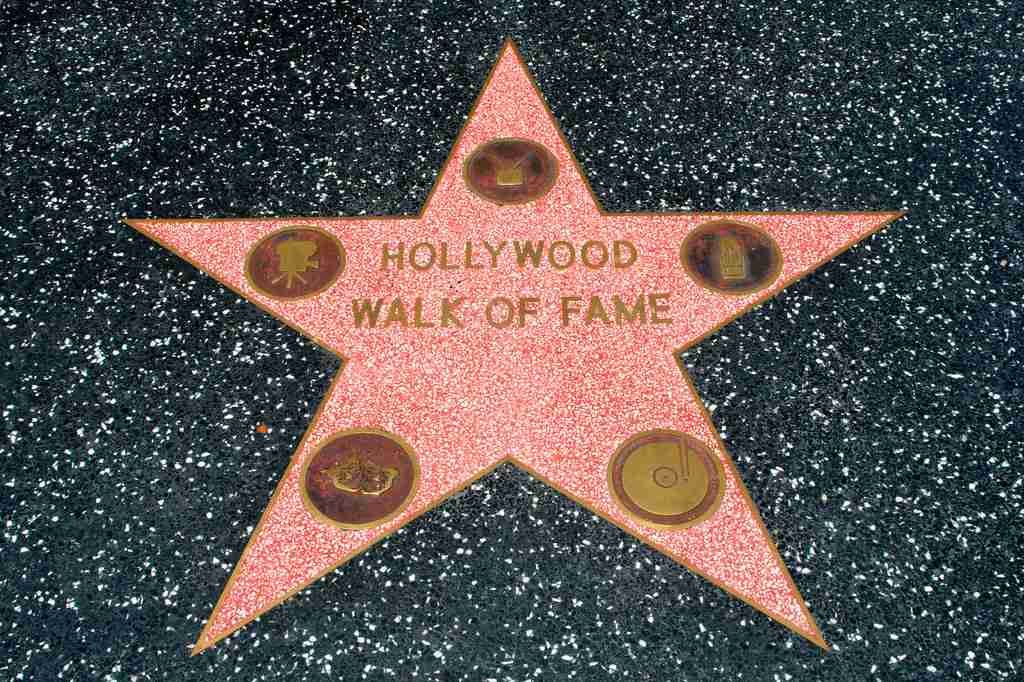
Ali’s star on the Hollywood Walk of Fame, awarded in 2002, is unique because it’s the only star mounted on the wall rather than the sidewalk. Ali requested this to respect the name of Muhammad, which he shares with the prophet of Islam.
This honor reflects Ali’s status as an entertainment figure and his respect for his faith, highlighting his multifaceted legacy.
13. Ali once saved a man from committing suicide.
In 1981, Muhammad Ali saved a suicidal man in Los Angeles, talking him down from jumping off a building. Ali rushed to the scene after hearing the news on the radio.
His successful persuasion demonstrated Ali’s compassion and ability to connect with people facing deep despair. This act of heroism added another layer to his legend, showing his commitment to helping others in need.
14. When did Muhammad Ali pass away?
Muhammad Ali, the legendary boxer, passed away on June 3, 2016.
15. Ali was an avid beekeeper.
Muhammad Ali’s interests extended beyond the boxing ring and activism; he was also passionate about beekeeping. This hobby was a nod to his famous quote, “float like a butterfly, sting like a bee.”
Keeping bees allowed Ali to connect with nature and find peace outside the public eye. It was one of the ways he enjoyed his quieter moments, reflecting on the natural world.
16. His influence extended into the realm of civil rights.
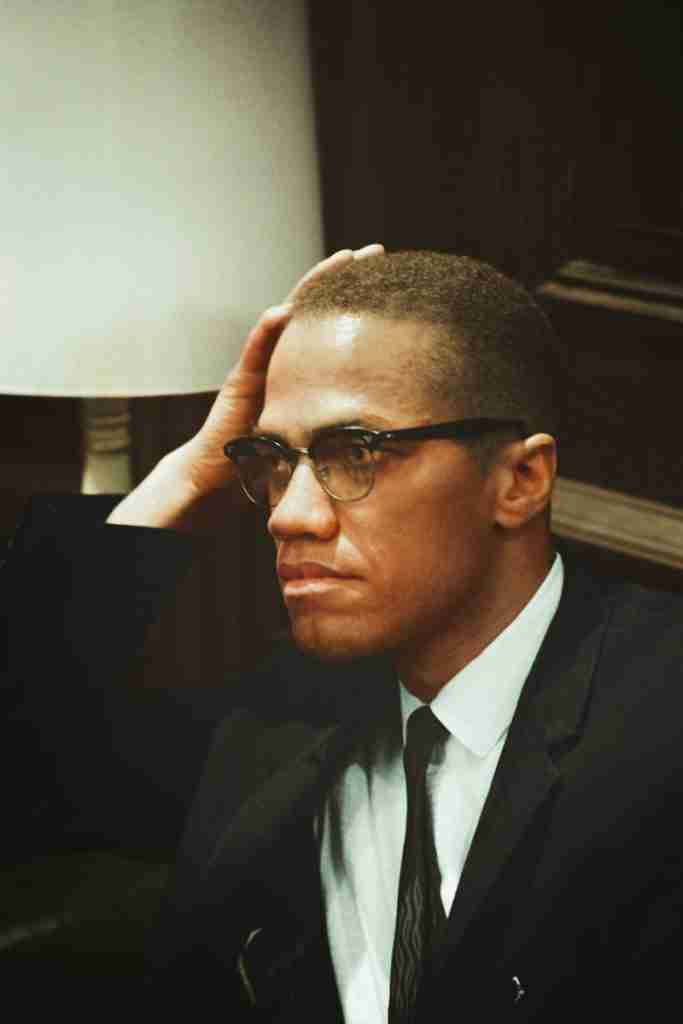
Muhammad Ali was not just a sports icon; he was also a prominent figure in the civil rights movement. His friendship with Malcolm X and his membership in the Nation of Islam were pivotal in shaping his views on race and identity.
Ali’s outspoken nature and refusal to be drafted into the Vietnam War were influenced by his commitment to civil rights and social justice, making him a symbol of resistance and empowerment.
17. Ali recorded a spoken word album that was nominated for a Grammy.
Ali’s talents were not confined to the boxing ring; he also made his mark in the world of music. In 1963, he released an album titled “I Am The Greatest,” which featured his spoken word poetry and was nominated for a Grammy.
The album highlighted Ali’s wit and charisma, and its title track is remembered as a testament to his confidence and poetic skill. It remains a unique crossover of sports and music.
18. Ali was a magician and loved performing magic tricks.
Ali’s love for magic tricks is one of the more whimsical fun facts about Muhammad Ali. He enjoyed performing magic for children and would often use simple tricks to entertain them during public appearances.
His fascination with magic was another facet of his playful personality. It allowed him to connect with fans on a personal level, making him even more beloved.
19. He was named “Sportsman of the Century” by Sports Illustrated.
In 1999, Muhammad Ali was honored as “Sportsman of the Century” by Sports Illustrated, recognizing his achievements both inside and outside the boxing ring. This accolade highlighted Ali’s impact on the world of sports and his role as a global ambassador.
The award reflected Ali’s influence on sportsmanship, his contribution to civil rights, and his enduring legacy as a fighter who transcended the boundaries of his sport.
20. He fought in the longest heavyweight title fight of the 20th century.
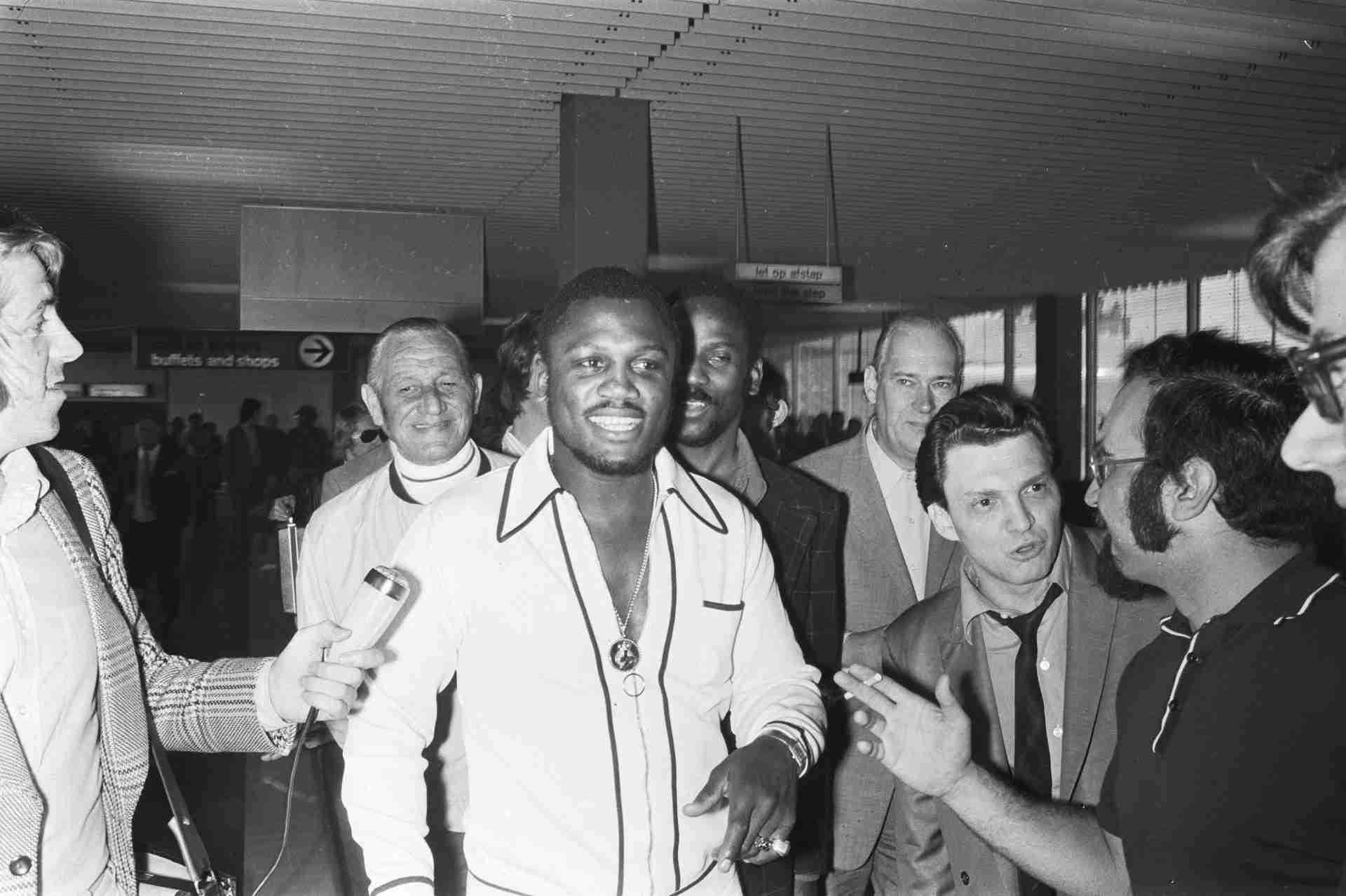
In 1975, Ali participated in the “Thrilla in Manila,” the third and final bout against Joe Frazier, which is often cited as the longest heavyweight title fight of the 20th century. The match lasted 14 rounds under the sweltering Manila heat.
Ali won by technical knockout when Frazier’s corner threw in the towel before the 15th round. This brutal contest tested the limits of human endurance and is remembered as one of the greatest fights in boxing history.
21. Ali’s fights were watched by billions around the world.
Ali’s boxing matches were global events, watched by billions of fans around the world. His ability to draw audiences was unmatched, making him one of the most recognizable figures worldwide.
His fights against Sonny Liston, Joe Frazier, and George Foreman were among the most watched sports events of their time. Ali’s charisma and talent made him a global icon of the sport.
22. Muhammad Ali changed his name after converting to Islam in 1961.
Muhammad Ali, born Cassius Marcellus Clay Jr., underwent a significant transformation in 1961 when he embraced the teachings of the Nation of Islam and converted to Islam. Motivated by his newfound faith and a desire for personal identity, he decided to change his name to Muhammad Ali.
This change not only reflected his religious convictions but also marked a powerful declaration of independence and self-determination. Ali’s decision to adopt his new name became a symbolic representation of his commitment to both his religious beliefs and the principles of autonomy and self-expression.
23. What is Muhammad Ali’s birth date?
Muhammad Ali, born as Cassius Marcellus Clay Jr., was born on January 17, 1942.
24. He was friends with Elvis Presley.
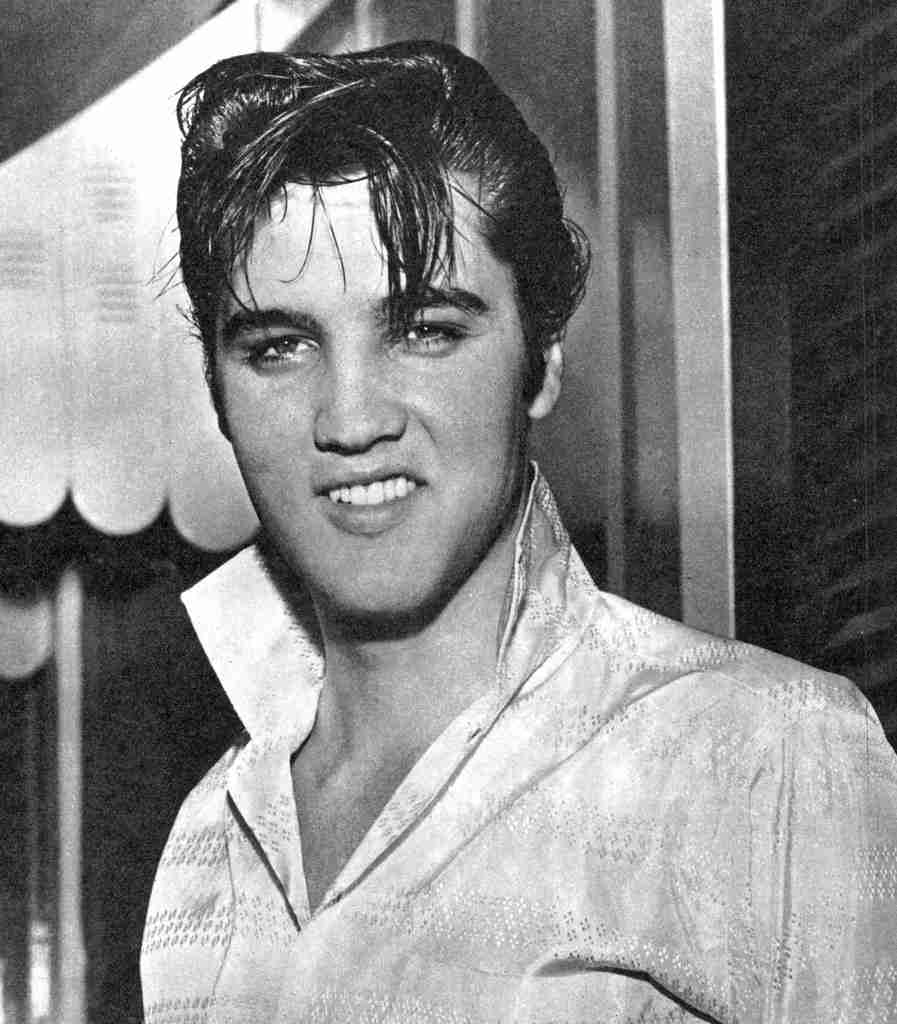
Ali’s friendship with Elvis Presley is a testament to his wide-ranging appeal and connection with other iconic figures of the 20th century. Elvis gifted Ali a custom-made robe emblazoned with “The People’s Champion” before one of his fights.
This robe symbolized the mutual respect and admiration between two of the most influential figures of their era. Their friendship bridged the worlds of sports and entertainment, highlighting Ali’s widespread influence.
FAQs
Muhammad Ali was known for his inspirational quotes. One of his famous quotes is, “Float like a butterfly, sting like a bee. The hands can’t hit what the eyes can’t see.”
Muhammad Ali passed away at the age of 74.
Muhammad Ali was special because of his unparalleled boxing skills, his charismatic personality, and his unwavering stance on social justice issues. He was a symbol of both athletic excellence and fearless activism.
Cassius Clay is the birth name of the renowned boxer Muhammad Ali. He changed his name after converting to Islam.
Muhammad Ali introduced a new, dynamic style based on speed and agility, and he transformed boxing into a spectacle with his charisma and showmanship.

